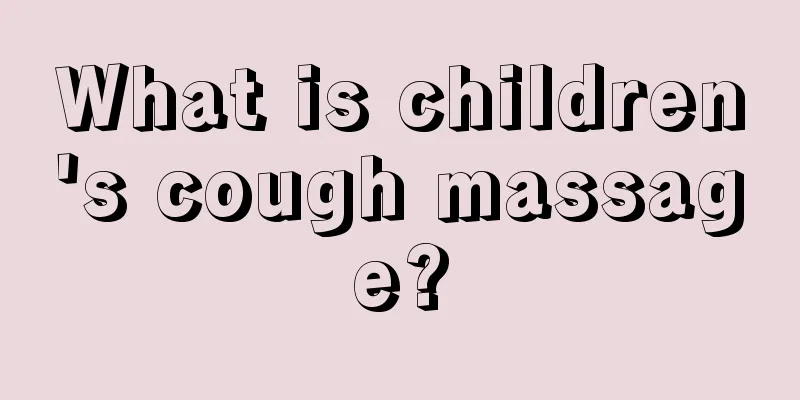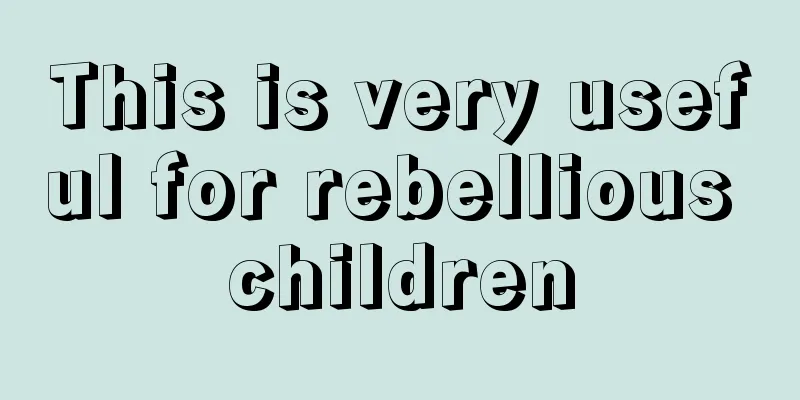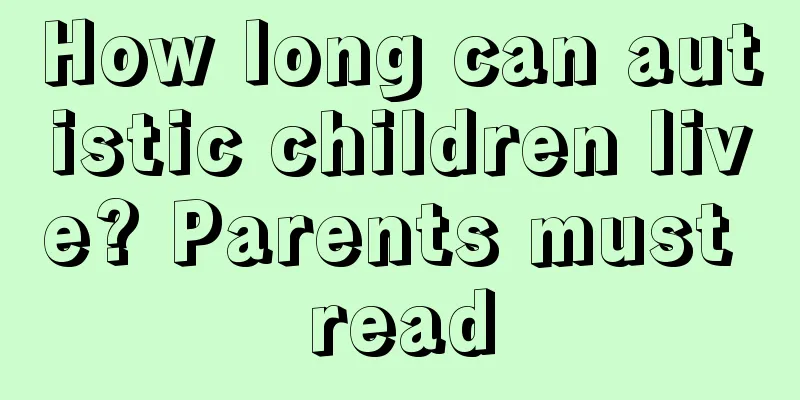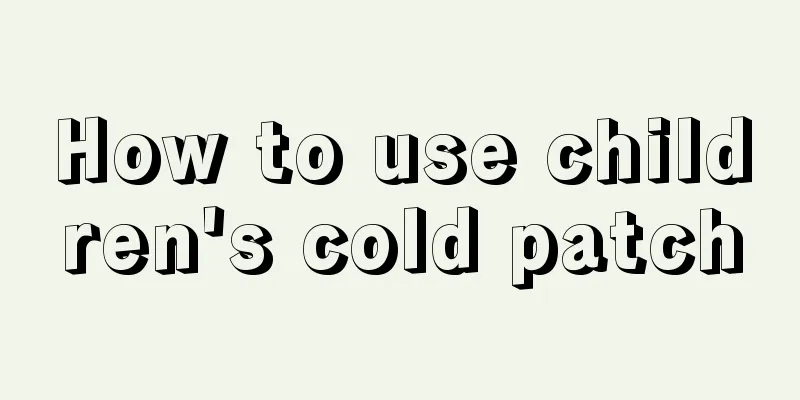Five ways to keep your baby away from prickly heat in summer

|
Tip 1: Temperature control A hot and humid environment is particularly prone to prickly heat. Therefore, families with babies must keep the room ventilated and cool to reduce the baby's sweating and facilitate sweat evaporation; the high temperature and humid indoor environment can be improved through air conditioning, fans and other equipment. The room temperature should be kept at around 25°C and the humidity should not exceed 60%. But be careful not to let the wind blow directly on the baby. Tip 2: Eat a light diet Feed your children light, easily digestible food with proper nutrition. Supplement them with more food rich in protein and vitamins. Also add an appropriate amount of salt to their diet. Let your baby drink more water and replenish water in time, such as drinking more mung bean soup, winter melon soup, loofah soup, chrysanthemum water, and eating more fruits such as watermelon, to play a role in clearing away heat and relieving summer heat. Tip 3: Wear light clothing Baby's summer clothes should be light, soft and loose, preferably made of pure cotton fabric that is absorbent and breathable to reduce irritation to the skin and help dissipate body heat. Because babies tend to sweat when it is hot, if the clothes are too tight, the sweat will not have time to be discharged and evaporate, which will clog the sweat glands and cause prickly heat. Some mothers like to let their babies be naked, thinking that it is more breathable and cooler, but this will inevitably cause adverse stimulation to the baby's skin and cause prickly heat. Tip 4: Take a bath frequently Wipe sweat in time. If the child sweats during activity, wipe it clean immediately with a soft tissue or towel, especially on the neck, arms, leg joints and other places where sweat is easily accumulated in infants and young children. Take a bath frequently. Bathing not only cleans the skin, but also helps to eliminate sweat. When the weather is hot, make sure to bathe your child with warm water 2 to 3 times a day. Don't use hot or cold water, use warm water. Do not use harsh alkaline soaps. Dry yourself immediately after bathing. Avoid wiping with a cold towel or rinsing with cold water immediately after sweating profusely, because the sudden cold stimulation will cause the baby's sweat glands to contract, and sweat cannot be discharged, which will easily cause prickly heat. It is best to mix hibiscus leaves, lotus leaves, bitter gourd hearts and aloe leaves together and use them to bathe your child, which will be more effective in preventing prickly heat. Tip 5: Play in the shade When taking your baby to do outdoor activities, do not let him play under strong sunlight. Avoid the hottest time of summer and choose to play under the shade of trees in the morning and evening when the climate is cool. Recipe for treating prickly heat: Bitter melon and watermelon are both treasures What should you do if your baby has prickly heat? Experts teach a little trick: once you find that your child has prickly heat, immediately buy fresh white bitter melon, cut it into slices, and apply the white bitter melon juice directly on the child. Watermelon, which is often eaten in summer, is also a good remedy for getting rid of prickly heat. Apply the watermelon rind directly on the child's body, repeatedly several times, and it can effectively get rid of prickly heat. If your child has prickly heat, do not apply ointments or oil preparations, and do not let your child squeeze or scratch the affected area with his hands. If large-scale prickly heat or purulent heat occurs, you should go to the hospital for treatment immediately. Ran Qin also said that if prickly heat occurs on the head and neck, the baby's hair should be cut short, or the hairstyle should be changed, combing the hair back and not leaving hair on the forehead. If the baby is younger, comfort is more important than appearance, so the baby's hair can be shaved off. Also, after getting prickly heat, you should wash your hands frequently and cut your nails short. Disadvantages: If the nails are not cut, since prickly heat is often accompanied by varying degrees of itching, scratching by the baby will aggravate the skin's inflammatory response and cause the baby's prickly heat to worsen. And it should not irritate the skin. Disadvantages: If you have prickly heat, do not use hot water or soap to wash it, so as to avoid increasing the local skin temperature and aggravating the inflammation, which will quickly turn prickly heat into dermatitis. Due to the stimulation of soap, the skin may break and ooze water on the basis of redness and swelling, or become infected and fester. |
<<: 5 dietary suggestions for fat babies
>>: Expert analysis: Four major fallacies in baby care
Recommend
Is the smell of pine furniture harmful to babies?
Furniture is an indispensable item in home life, ...
Is it better to use diapers or diapers?
In recent years, the frequency of diaper use has ...
How to care for baby's snoring throat
Babies under three years old are very susceptible...
What are the symptoms of mercury poisoning in babies?
Babies are very active and curious about many thi...
Can I use a fan when my child has a high fever?
A high fever in children is a common symptom. In ...
Does hand, foot and mouth disease itch in children?
Although hand, foot and mouth disease is not that...
What should children eat to eliminate lead?
Lead is a metal substance. For children, excessiv...
What should I do if my two-year-old baby has a cough and runny nose?
Two-year-old babies are relatively young and have...
Can an inguinal hernia in children heal on its own?
Inguinal hernia is a congenital developmental abn...
8 month old baby urticaria
Children are the apple of their parents' eyes...
What should I do if my baby has repeated diarrhea?
Every mother will feel very headache when her bab...
What should I do if my child chokes?
People often choke when eating. If an adult choke...
What are the symptoms of children's allergic reaction to cephalosporin?
Cephalexin is a very common anti-inflammatory ant...
Why does a baby have green poop after eating milk powder?
Babies are what we parents need to learn about. N...
What disease causes the child's breathing difficulty?
Normal breathing is a very important part of main...









